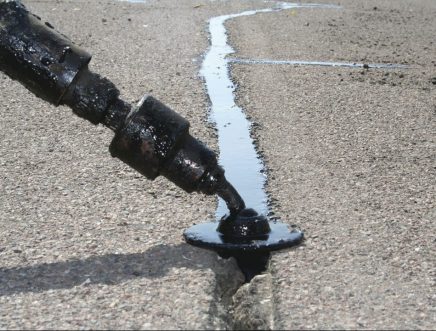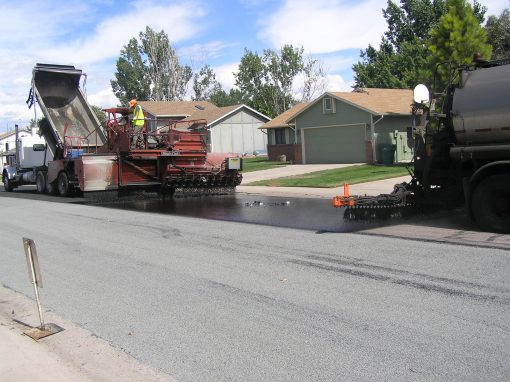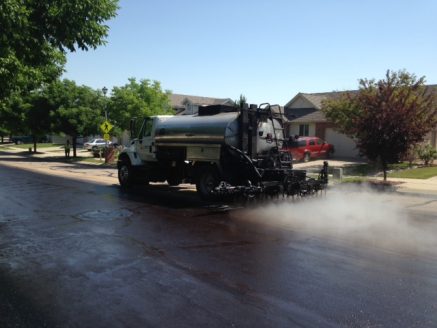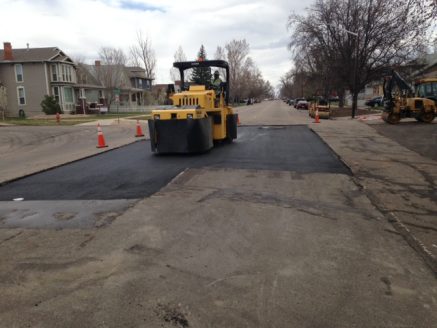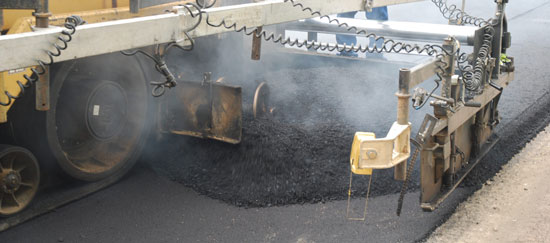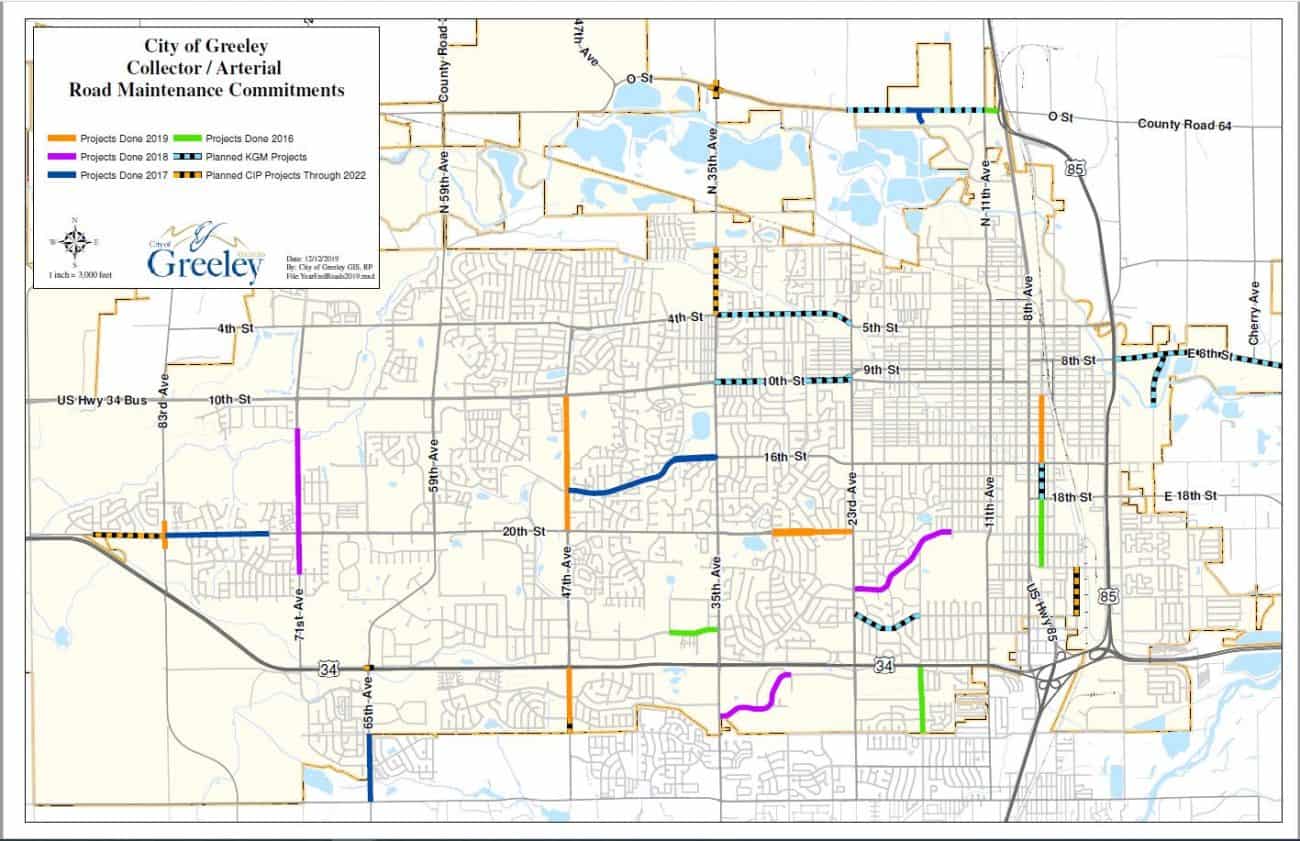When streets are regularly maintained, the city is able to keep them in a safe condition and generally will only need to replace the top layer of asphalt in its annual overlay program. If a road is neglected too long, all of the old asphalt must be removed, and then replaced by six to ten inches of new asphalt depending on the roadways type and level of use. This complete rebuild can cost up to three times as much as an overlay.
Every mile of Greeley’s streets are entered into a computerized program designed to maximize the life of city streets and to minimize costs by applying the most cost effective maintenance technique to the various roadways. The system prioritizes the streets based on their functional classification (neighborhood/residential, arterial, etc.), roadway defects and current street ratings to create a road maintenance plan.
City staff analyzes the recommended streets and proceeds with the streets in a manner that “makes sense” and is within the funding provided. The goal of the program is to “do the right maintenance at the right time.” The plan is coordinated with the city’s Utilities Department and cable, gas and power companies to allow them to construct any upgrades to their facilities prior to any scheduled pavement overlay construction.
By coordinating our plans with these utility projects, we avoid having recently resurfaced streets dug up and the longevity of the new pavement surface compromised. This is one of the main reasons drivers will see work in the roadway before a pavement overlay job.
Keep Greeley Moving originally identified 10 heavily-traveled collector and arterial roads needing a complete overlay.
As the program gained extra funding, officials identified additional sections of road — 28th Street and an additional section of 25th Street — increasing the number of projects and bringing the projected cost to a total of $7,258,443.
The first seven projects were completed in 2016, 2017, and 2018 after voters approved the Keep Greeley Moving Tax.
In 2019, crews will overlay 25th Street and 4th Street.
2016
$424,265
2016
$337,633
2016
$496,177
2017
16th Street: 35th to 47th Avenue
$975,253
2018
Reservoir Rd: 15th to 23rd Avenue
$718,000
2018
28th Street: Reservoir Rd to 27th Street
$254,525
2018
29th Street: 35th to 27th Avenue
$635,250
2019
7th Avenue: 13th to 18th Street — Phase II
$270,240
2019
47th Avenue: 10th to 20th Street
$1,167,695
2020
25th Street: 23rd to 17th Avenue
$365,000
2020
4th Street: 23rd to 35th Avenue
$750,000
2021
Ash Avenue: 8th to 16th Street — Phase I
$428,000
2022
“O” Street: 25th to 35th Avenue
$494,425
2022
Ash Avenue: 8th to 16th Street — Phase II
$428,000
Road Maintenance Programs
